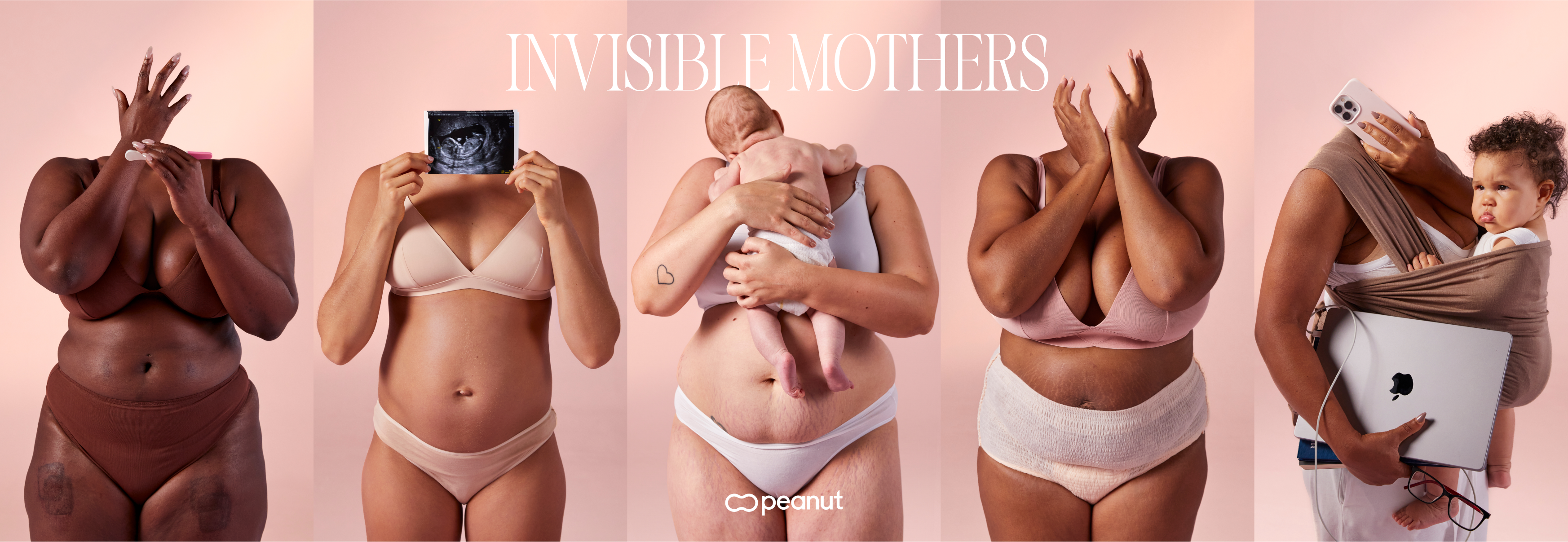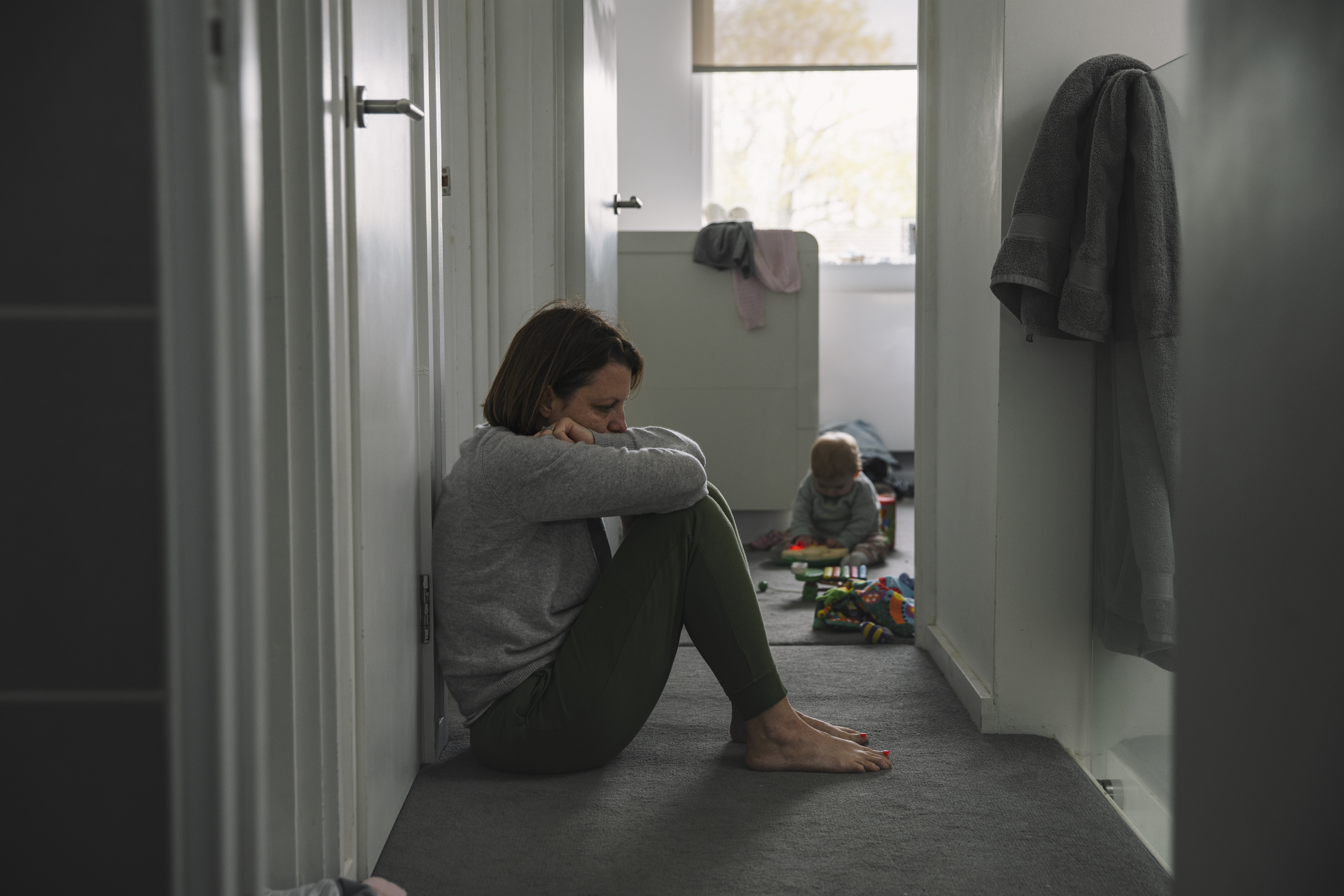93% of mothers say these 3 things are making them feel ‘invisible’, and their honesty will resonate with you
A new campaign is being launched to tackle the rising number of 'Invisible mothers'


A staggering 93% of mothers say they feel unseen, unsupported and under-appreciated highlighting the harsh reality of modern motherhood, as a women's support app launches a campaign to put an end to 'invisible mothers'.
Being a mother, isn't just about paced bottle feeding, clothing and caring for a child, the role goes beyond the basic day-to-day needs and with more women being forced to work full time amid the rising cost of livingand to fund childcare costs, many mums can often find themselves spinning multiple plates while juggling parenting duties.
Whether it's caring for an elderly family member, or being the main breadwinner, often mothers have to divide their time between their responsibilities, and the term 'invisible' isn't because the mother isn't present - it's actually the opposite - and refers to them not being recognised and appreciated for all the things they do.
In an in-depth survey of Peanut’s UK community, a disconcerting trend emerged: 72% of women feel invisible (30% often and 42% sometimes) and 93% feel unappreciated, unacknowledged or unseen in this role (46% often and 47% sometimes). But perhaps most tellingly, 93% of women say since having a child their identity feels minimised to just one: mother. At a time when they perhaps really want that girls' night out, or that promotion but are instead being overlooked for the invites or the in-house interview.

Rachel Goldman, PhD, FTOS, licensed psychologist and Peanut Pro, said, “The invisibility of motherhood is a stark reality many face. The journey begins with frequent visits to healthcare providers, but once the child arrives, there’s a sudden gap, creating a sense of abandonment at a pivotal time. Women grapple with overwhelming feelings of exhaustion and stress, only to confront rushed appointments where healthcare professionals don't have time to adequately dive into concerns."
But Rachel claims the problem is bigger than healthcare alone, and society as a whole needs to change. She explained, "Women feel hesitant addressing their challenges with those in positions of power meaning we must foster an environment where women feel valued, supported, and willing to voice their needs. It's imperative to break stigmas - normalising both parents' active roles, mental health support, and nurturing communication.
"The words we hear and use greatly affect us individually and as a society - we internalise things that we see and hear. But it doesn’t take grand gestures to offer support.
GoodtoKnow Newsletter
Parenting advice, hot topics, best buys and family finance tips delivered straight to your inbox.
"A genuine 'how are you' or 'thinking of you' can significantly shift perceptions, signalling to someone that they matter."
"A genuine 'how are you' or 'thinking of you' can significantly shift perceptions, signalling to someone that they matter."
Rachel Goldman, PhD, FTOS, licensed psyc
She believes the "butterfly effect" - small changes or actions, like compassionate conversations, can have profound impacts.
She added, "By acknowledging and addressing these issues, we can begin to reconstruct the societal infrastructure to truly support motherhood."
The effects of invisibility on mothers
Nearly all women surveyed (95%) agree that the invisibility of maternal experiences is impacting women’s mental health and well-being. As a result, women say they have experienced;
- Anxiety (86%)
- Stress (82%)
- Burnout/exhaustion (82%)
- Overwhelm (80%)
- Loneliness or isolation (80%)
- Irritability (78%)
- Loss of identity (65%)
- Feeling judged (66%)
- Feeling unsupported (64%)
- Guilt (63%)
- Depression (55%)
- Resentment (54%)
- Worthlessness (50%)
- Neglect (24%)

Some of the things that makes mothers feel 'invisible'
- Unfair division of labour in the home
- Trying to juggle a career and childcare
- Lack of empathy and understanding from family, peers and strangers
- Blindspots in healthcare and mental health support
- Struggles to assert identity and independence
- Having to hide the pain of pregnancy loss, and pressures from institutions such as healthcare, education, and media.

The promise of ‘having it all’ now feels like a huge pressure, rather than an aspirational dream, with 97% saying they feel society puts pressure on women to ‘do it all and be it all.’ Making matters worse, 94% feel expected to put themselves last and self-sacrifice for families, partners, jobs, and other responsibilities (69% often and 25% sometimes) in order to achieve what they feel is expected of them.
And women don’t feel supported to do this: most worryingly, 46% did not feel supported by the healthcare system post-birth. And 70% expected to have more support from societal infrastructure than they do. Much focus is put on the way partners and close family members fail to support women, but the reality is: the problem extends far beyond the culture of any individual family or home.
And here are just some of the heartbreaking examples women have shared that highlight a time when they've felt pressure or been judged;
- “My entire ‘fourth trimester’ I felt invisible. It’s such an insane change to go from caring for yourself to caring for a baby. I was struggling with anxiety and it was hell.”
- “I have to mother like I don't have a job and work like I don't have children. I’m constantly dealing with the feeling of ‘I'm not doing enough.’”
- "While holding my 3-month-old, I was asked: when's the next one coming? It's like... you DO realise I am a PERSON and not just a baby birthing machine right?”
- “I’m never invited to social events because it’s assumed I'd have to bring the baby. OR my husband gets [invited] but people tell him I don’t have to go because I’ll be taking care of the baby.”
- “Assumptions that being a stay at home mum is just relaxing makes me feel invisible. I have to monitor [my child] full-time and have to plan out her naps, errands, food, chores. I have to deal with physical and mental overstimulation, and no one takes it seriously.”
- “I had to keep my pregnancy a secret because I got promoted. When [work] finally found out, I was excluded from team meetings and was treated like I was incapable of doing my job. My supervisor even suggested I quit.”
In other parenting news, Is there anything Kate Middleton can’t do? 3 reasons why this question is so damaging to mums, and if you're strapped for cash, here's how to claim 30 hours free childcare.
A post shared by Peanut App (@peanut)
A photo posted by on

Selina is a Senior Family Writer for GoodtoKnow and has more than 16 years years of experience. She specialises in royal family news, including the latest activities of Prince George, Charlotte, Louis, Archie and Lilibet. She also covers the latest government, health and charity advice for families. Selina graduated from the University of Sheffield in 2006 with a degree in Journalism, and gained her NCTJ and NCE qualifications. During her career, she’s also written for Woman, Woman's Own, Woman&Home, and Woman's Weekly as well as Heat magazine, Bang Showbiz - and the Scunthorpe Telegraph. When she's not covering family news, you can find her exploring new countryside walking routes, catching up with friends over good food, or making memories (including award-winning scarecrows!)